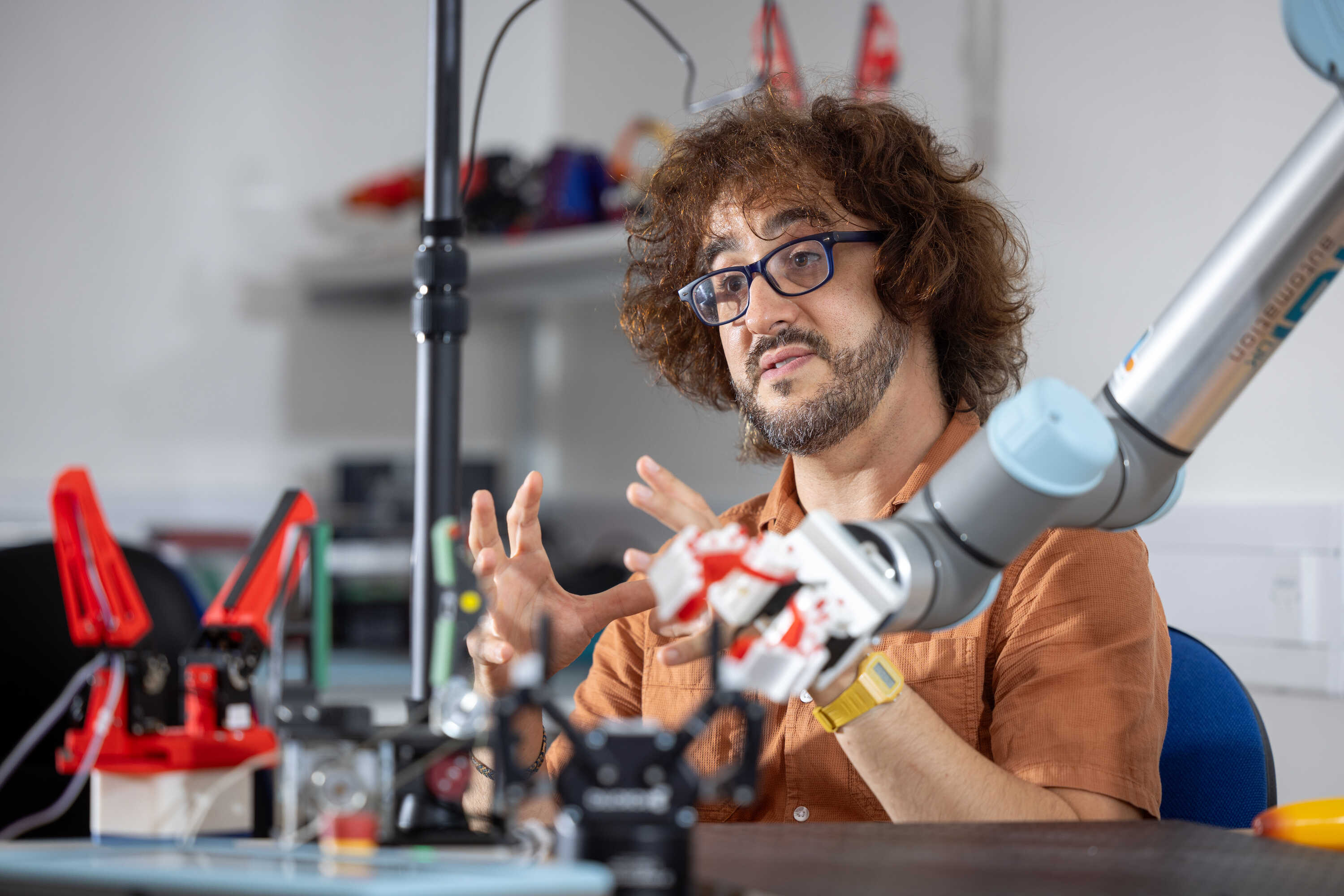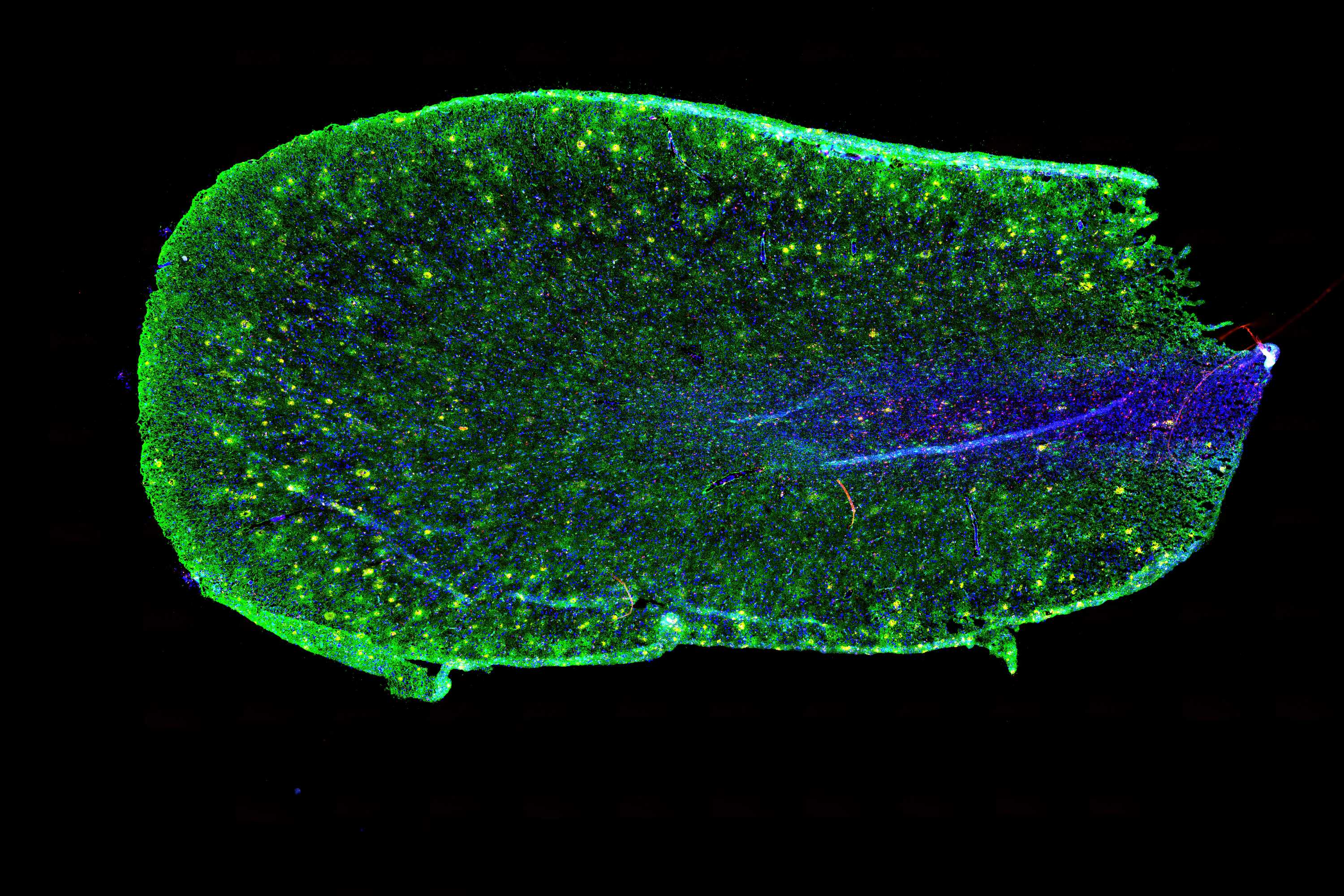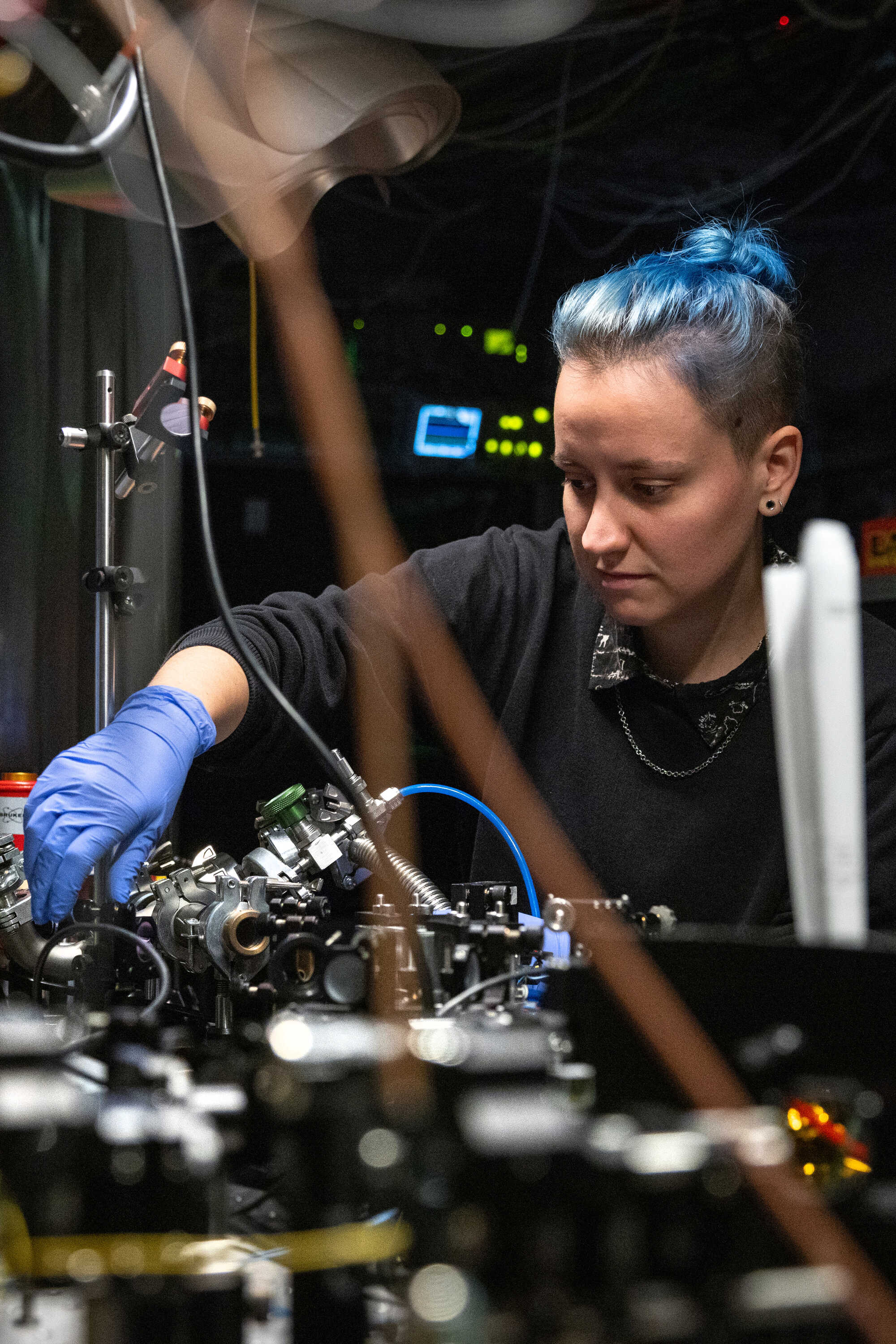According to the Research Excellence Framework (REF) 2021, we are the best place in the UK for academics to pursue their research and translate their work into real-world applications. We have the highest research impact of all Russell Group universities, with a greater proportion of ‘world-leading’ research than any other UK university.
One of the world's most international universities
Our reach goes far beyond the UK with two-thirds of our research involving an international collaborator, spanning more than 130 countries. Many of our recent European collaborations stem from our association to Horizon Europe: the European Commission’s main mechanism for funding research and innovation, which the UK rejoined at the beginning of 2024. Our association so far has resulted in participation in projects ranging from improving carbon capture and understanding clouds and aerosols in the climate, to transforming the healthcare approach to Alzheimer’s Disease.
“There is so much to gain from bringing together the brightest scientific minds from across Europe and we are excited by the future opportunities to work closely with our colleagues in Europe and around the world.” Professor Ian Walmsley, Provost, Imperial College London
32
Number of research students from 16 countries who completed their Global Development Hub Fellowship at Imperial in 2024.
Sustainable protein
Bezos Centre for Sustainable Protein launches at Imperial with US$30 million funding
A new centre at Imperial will address the critical global issue of our current unsustainable and environmentally damaging food ecosystems. Imperial’s Bezos Centre for Sustainable Protein, spanning across seven academic departments, will advance research into precision fermentation, cultivated meat, bioprocessing and automation, nutrition, and AI and machine learning. The Bezos Earth Fund is providing the funding as part of a $100 million commitment to developing sustainable protein alternatives and expanding consumer choice, and an overall $1 billion commitment to food transformation. It’s one of multiple Earth Fund Centres working with institutions and industry partners to develop and commercialise new alternative protein products to give consumers more choice for meat-free and dairy-free products.
Our award-winning academics and researchers
This year has seen Imperial academics win many prestigious awards and accolades. In June 2024, eight individuals and two teams won accolades in the Royal Society of Chemistry Prizes. July 2024 saw two researchers and an Imperial alumnus awarded top honours by the Royal Academy of Engineering: The Princess Royal Silver Medal; and the Young Engineer of the Year award. There have also been honours in our Physics department, with five Imperial academics earning prestigious honours and awards from the Institute of Physics in October 2023.
This year also marks the tenth anniversary of WE Innovate, Imperial’s competition for women-led startups – the first of its kind at a UK university. So far, the programme has supported more than 500 women who have gone on to raise almost £38 million for their ventures.
“The programme helped us turn an idea that began as our master's project into a startup set to make a real impact in the world.” Diana Epel, co-founder and CEO of Sealeo, winners of WE Innovate 2024.
Artificial intelligence
Artificial intelligence (AI) has the power to revolutionise society. Imperial has over 1,000 researchers dedicated to developing AI safely and responsibly across all disciplines. Our focus extends beyond technological advancement to the profound impact AI can have on the world. Our new Human and Artificial Intelligence School of Convergence Science will support this work and will provide a new portal for external partners, supporters and stakeholders, including more effective routes to Imperial’s research, education and innovation. Imperial’s Data Science Institute provides the foundation for translating data into actionable insights, while our digital foundry, I-X, is a catalyst for innovative AI solutions addressing critical societal challenges. Through partnerships with industry leaders like GSK, Thomson Reuters, and Amazon Web Services, and by nurturing AI startups, we are driving transformative change in healthcare, energy, transportation, finance and education.

Our commitment to developing the next generation of AI leaders is evident in our Centres for Doctoral Training and our strong representation at the Alan Turing Institute, the UK's national institute for data science and artificial intelligence. By bridging the gap between academia and policy through our Science Policy Fellowship scheme, we ensure that AI is developed and regulated with societal well-being at its core. A new accelerator initiative, led by Imperial, is also forging a path for early career researchers to launch high-potential startups using AI to solve real-world problems. The AI SuperConnector will support researchers with entrepreneurial ambitions from Imperial, Leeds and Liverpool universities.
Imperial has also joined the University of Liverpool on a £12 million research hub to develop state-of-the-art AI for chemistry. The hub will bring together leading academic researchers, industry and other stakeholders to promote a collaborative community, offer training, and create new approaches at the rapidly evolving AI-chemistry interface.
New hub to unravel mathematics behind AI
Imperial researchers are co-leading a £10 million AI hub that will develop frameworks for understanding machine learning models. The AI Hub is a consortium of six universities and 13 British international industry and public sector leading players as partners. The consortium will study the mathematical and computational underpinning of AI using pure mathematics. Its research will go towards building more principled, effective, and safer models.
Health research
In a significant step forward this year, cancer patients received a new therapeutic treatment to help their bodies recognise and fight cancer cells as part of a global trial, but also potentially eliminate cells that may suppress the immune response. Cancer vaccines have the potential to make conventional immunotherapy more effective, and a number of cancer vaccines are entering clinical trials across the globe. This trial is run in partnership between Imperial College London and Imperial College Healthcare NHS Trust, with the first patients in the UK receiving the treatment at Hammersmith Hospital.

Imperial is also making substantial strides in addressing the growing burden of neurological diseases. Alzheimer’s disease represents a major public health challenge. In Europe alone, around seven million people are living with Alzheimer’s disease, a figure that is expected to double by 2050. Earlier this year, Imperial joined a consortium of 24 partners that aims to bridge the gap between Alzheimer’s research, implementation science and precision medicine. The AD-RIDDLE programme aims to transform how Alzheimer’s disease is detected, diagnosed and treated across healthcare settings.
As a global leader in human infection challenge studies, Imperial is spearheading the development of next-generation vaccines to combat future pandemics. Earlier this year, an international group of researchers embarked on a project to develop advanced virus-blocking vaccines. The global consortium will lay the crucial groundwork needed to develop the next generation of COVID-19 vaccines that could stop SARS-CoV-2 and other coronaviruses from infecting people in the first place. Led by Imperial, the project will be co-funded by US$57 million (£44 million) from the European Union’s Horizon Europe Programme and CEPI (the Coalition for Epidemic Preparedness Innovations).
Meanwhile, at our St Mary’s Campus, Paddington, plans for the Fleming Centre are moving at pace. A joint initiative between the University and Imperial College Healthcare NHS Trust, the Centre will tackle antimicrobial resistance globally and will open in 2028, which marks the centenary of the discovery of the first antibiotic by Sir Alexander Fleming on the same site. We announced in May 2024 that global biopharma company GSK has pledged £45 million to support the initiative, becoming our first partner, while the Centre also has the backing of the UK Government, which has committed £5 million in seed funding.
“This trial is laying crucial groundwork that is moving us closer towards new therapies that are potentially less toxic and more precise. We desperately need these to turn the tide against cancer.” Dr David Pinato, Department of Surgery and Cancer.
US$57 million
EU Horizon Europe Programme and CEPI funding for COVID-19 vaccine project.
10 million
Estimated number of lives lost yearly to drug-resistant infections. The Fleming Centre aims to solve this problem.
UK’s first womb transplant operation
After more than 25 years of research, a team co-led by Imperial’s Professor Richard Smith performed the first womb transplant in the UK. This groundbreaking operation gave a woman who was born without a functioning womb the possibility of becoming pregnant and carrying her own baby. One in five thousand women in the UK are born without a viable womb and many others have had to have their womb removed following cancer or other illnesses and conditions. The womb transplant marks a major breakthrough for women’s health.
Imperial leading the way in heart research
Heart attack diagnosis tool
A game-changing tool, developed by Imperial PhD student Dario Sesia, is set to revolutionise heart attack care. This cutting-edge AI technology can rapidly rule out heart attacks in A&E patients, allowing them to be safely sent home. The tool successfully ruled out heart attacks in over one-third of patients, compared to 27% ruled out by troponin testing alone.
Heart disease risk in British South Asian populations
New research shines a spotlight on the heightened heart disease risk facing British South Asians. Imperial experts uncovered that this community is nearly twice as likely to have coronary heart disease than White Europeans. The findings, from the largest study of its kind, are a crucial step forward in targeted prevention and treatment.
Remote care revolutionises heart recovery
Imperial-led research has shown that patients recovering from heart attacks can benefit hugely from remote monitoring. By using specialist home devices, patients can keep tabs on their vital signs and connect with expert care teams instantly. This approach led to patients being 76% less likely to be readmitted to hospital within six months and a 41% drop in A&E visits.
Life on Mars
An international team of researchers led by Imperial has found signs that water was abundant in Mars’ Gale crater long after the planet was thought to have become dry and inhospitable. The findings have implications for our understanding of Mars’ changing climate, as well as where we now look for signs of habitability. The researchers’ discovery has implications for future space exploration missions, particularly in the search for signs of life beyond Earth. On Mars, the Stimson formation and similar desert sandstones were previously considered less promising targets when hunting for biosignatures – evidence of past primordial life – on Mars. Finding these water-formed structures changes that notion.
Quantum and space science

Imperial is at the cutting edge of harnessing the extraordinary potential of quantum science to revolutionise technology and society. Building on groundbreaking research, Imperial scientists are developing technologies with the potential to revolutionise industries and improve lives globally.
A major leap forward in quantum communication was achieved this year, with Imperial researchers successfully producing, storing and retrieving quantum information for the first time. This breakthrough brings us closer to a future of secure, unhackable communication networks and distributed quantum computing, with the potential to revolutionise fields from finance to medicine.
Beyond quantum communication, an instrument built by Imperial physicists has embarked on a mission to study the Sun’s influence on the solar system. This cutting-edge technology will provide crucial data to help us understand the radiation and space environment throughout the inner solar system, and our solar system’s home within the galaxy.
